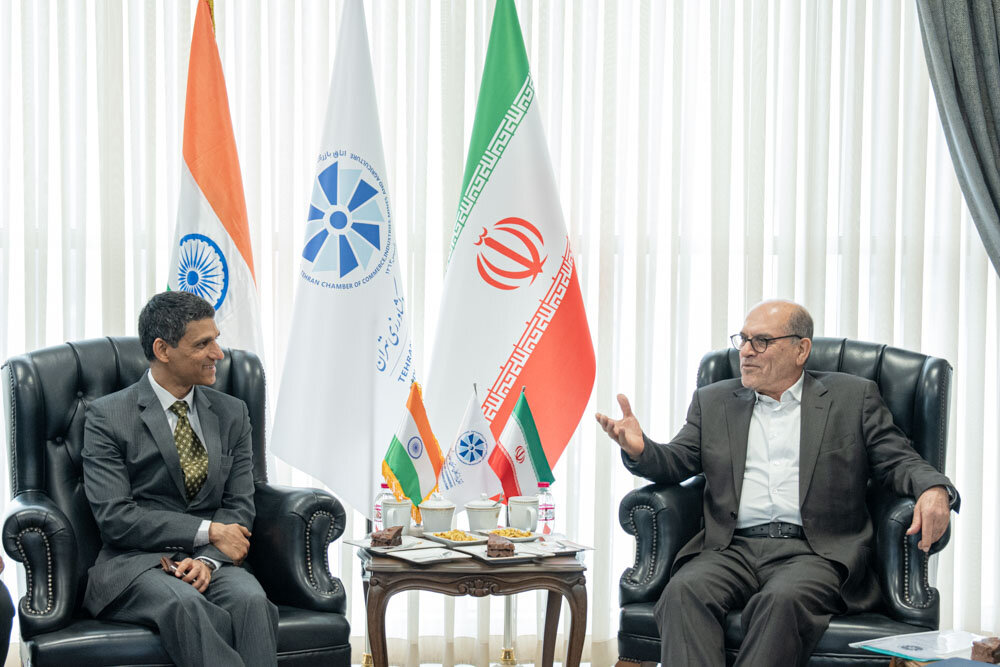Tehran, New Delhi focus on sanction-free trade in business talks

TEHRAN – Head of the Tehran Chamber of Commerce, Industries, Mines and Agriculture (TCCIMA) Mahmoud Najafi Arab met with Indian Ambassador Rudra Gaurav Shresth to explore avenues for expanding economic ties between Iran and India, with both sides emphasizing the need to prioritize the exchange of non-sanctioned goods.
The meeting, held at the Tehran Chamber of Commerce, also included the TCCIMA Secretary General and the head of the South Gujarat Chamber of Commerce, who accompanied the Indian ambassador. Discussions focused on enhancing provincial-level economic cooperation led by business chambers.
According to a statement from the TCCIMA, Najafi Arab said that the longstanding historical and economic ties between the two countries provide a strong foundation for deeper cooperation, especially if international sanctions on Iran are fully lifted.
He called for swift finalization of a preferential trade agreement between the two countries and emphasized the importance of tariff reduction. Najafi Arab also highlighted joint opportunities in food security, organic production, smart agriculture, biotechnology, blockchain, and fintech.
He further proposed forming a joint consortium between Iranian and Indian private sectors for maritime and transit corridor projects, including trilateral cooperation with Russia to develop the International North–South Transit Corridor (INSTC). Participation in trade and industrial expos in both countries was also encouraged.
Fereydoun Vardinejad, Secretary General of the Tehran Chamber, reiterated the importance of subnational economic cooperation and expressed readiness to collaborate with Indian provincial chambers. He proposed holding virtual meetings to identify mutual business opportunities and suggested establishing a "green channel" between the chamber and the Indian embassy to expedite visas for businesspeople.
Ambassador Shrestha noted that U.S. sanctions on Iran have also had negative repercussions for the Indian economy. He explained that while the Indian government cannot mandate private sector activity, its investment in Iran’s Chabahar Port was a clear signal encouraging Indian firms to engage with the Iranian market.
He acknowledged the limited scope of current bilateral trade, which has hovered around $5.0 billion in recent years, and said that with a broader focus on sanction-free goods, trade could double to $10 billion within the next three to four years.
The ambassador said India remains a key market for agricultural and food products, and proposed converting the preferential trade agreement into a free trade pact covering food, agriculture, and pharmaceuticals—sectors not targeted by international sanctions.
Also speaking at the meeting, the president of the South Gujarat Chamber outlined the region’s main industries, including textiles, diamond polishing, agricultural products, and handicrafts. He proposed signing a cooperation agreement with the Tehran Chamber and invited an Iranian trade delegation to an investment and tourism expo scheduled for August in South Gujarat.
EF/MA
Leave a Comment